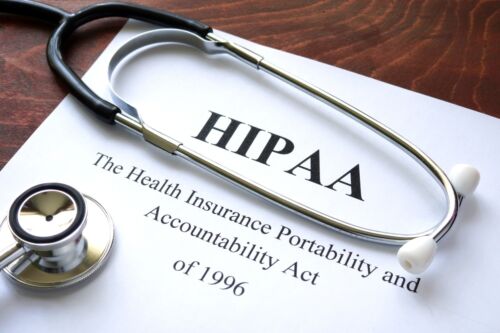Menu



A comprehensive estate plan shouldn’t only provide instructions for how your assets should be distributed after your passing — it should also include a plan for incapacity. While an incapacity plan can include a variety of tools to carry out your wishes, a HIPAA authorization is often overlooked. This document ensures your loved ones are able to access your medical records to make informed decisions on your behalf in the event you suffer from an illness or injury that renders you incapacitated.
A HIPAA authorization is a document that gives a designated individual or healthcare entity the authority to access your personal health information. This is critical if you are unable to make healthcare decisions for yourself due to incapacity caused by an illness or accident-related injury. Without signing this form, your medical provider would not be permitted to release your medical records to your family members, not even your spouse or children.
Although a healthcare power of attorney can allow someone else to make healthcare decisions for you — and an advance directive outlines your wishes — these documents do not automatically give that person the right to access your medical records under the Health Insurance Portability and Accountability Act. By signing a HIPAA authorization, you can ensure your medical records will be shared with your designated agent, and they can communicate with your healthcare providers.
There are a variety of reasons to include a HIPAA authorization in your estate plan. Importantly, it allows your family members to access your healthcare information and medical records. Having information about your health condition can help your loved ones make medical decisions on your behalf. The authorization can also allow your loved ones to settle your medical bills during your period of incapacity.
In addition, by executing a HIPAA authorization, your designated agent can receive prompt updates from your doctors about your health condition and treatment plan. This can help ensure your loved ones coordinate your care in accordance with your wishes — and any potential barriers that might prevent them from making timely decisions are eliminated.
In order to ensure compliance with federal guidelines and prevent complications in your healthcare agent accessing your medical records, a HIPAA authorization must contain specific information. By law, a HIPAA authorization must include the following:
Notably, a HIPAA authorization does not need to be open-ended — you can specify a duration for the disclosure. The disclosure period can end on either a certain date or event, such as your discharge from the hospital.
While the general rule is that personal health information (PHI) cannot be released without a HIPAA authorization, there are several exceptions that should be noted. Specifically, there are three reasons HIPAA-covered entities may release PHI without an authorization:
Disclosure of PHI may also be made as required by law to report abuse, neglect, or domestic violence.
You get to choose the individuals whom you wish to receive your health information. If you no longer wish for the person you designated on your HIPAA Authorization to have access to your medical documents, you can revoke the authorization at any time in writing. The revocation becomes effective once the healthcare entity receives it.
It’s crucial to review your estate and incapacity plan on a regular basis — especially if there are changes in your family situation. If you want to update your healthcare power of attorney and HIPAA authorization, you can simply execute new documents. A knowledgeable estate and incapacity planning attorney can guide you through the process.
No one wants to think about becoming incapacitated. However, injury or illness can occur at any time, and it’s essential to have a plan in place to ensure your wishes will be carried out if you cannot make decisions for yourself. At White and Bright, LLP, we work closely with individuals and their families for estate planning matters. We welcome you to contact us online or call us at (760) 747-3200 to learn more about our legal services.

© 2026 White and Bright, LLP
Legal Disclaimer | Privacy Policy
Law Firm Website Design by The Modern Firm